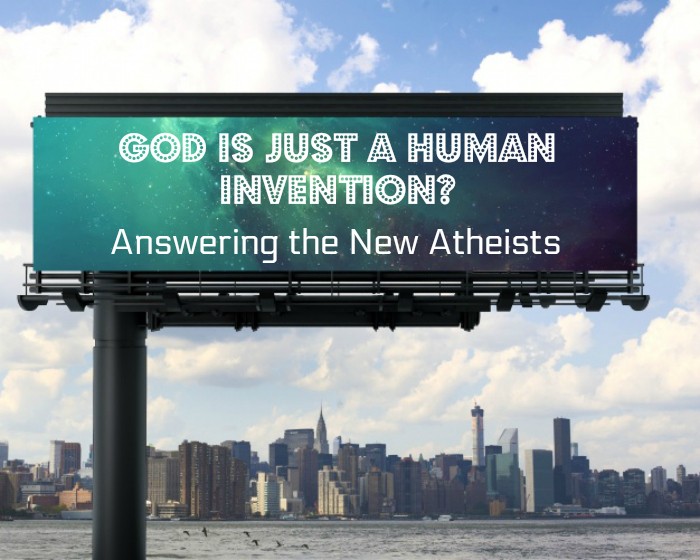Kerby Anderson
Many of the best-selling books over the last decade have been written by the New Atheists. Although you may never meet any of these authors, you will certainly interact with skeptics who use their arguments.
One of the best Christian books to help refute many of the arguments by these New Atheists is the book, Is God Just a Human Invention? written by Sean McDowell and Jonathan Morrow. They answer eighteen of the most-cited arguments used by the New Atheists against religion and especially against Christianity.
One of those arguments is found in the title of the book that God is merely a human invention. Sigmund Freud wrote that religious beliefs are “illusions, fulfillments of the oldest, strongest, and most urgent wishes of mankind.” In other words, we project the existence of God based on a human need. It is wish fulfillment. We wish there would be a God, so we assume that He exists.
As McDowell and Morrow point out in their book, there are many good reasons to reject this idea. One objection is that Freud’s argument begs the question. In other words, it assumes that there is no God and then merely tries to find an explanation for why someone would believe in God anyway.
The projection theory can also cut both ways. If you argue that humans created God out of a need for security, then you could also just as easily argue that atheists believe there is no God because they want to be free and unencumbered by a Creator who might make moral demands on them.
It is not surprising to read how many prominent atheists in the past have acknowledged just that. They wanted their sexual freedom and found that it required that they reject the idea of God. Paul teaches in the book of Romans (1:18) that fallen individuals “suppress the truth in unrighteousness.”
The Bible also has a good explanation for why most people believe in a God. The writer of Ecclesiastes (3:11) observes that it is God who has “set eternity in the hearts of men.”
 Listen Online
Listen Online Watch Online
Watch Online Find a Station in Your Area
Find a Station in Your Area










 Listen Now
Listen Now Watch Online
Watch Online
